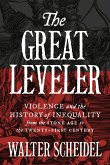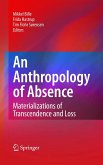The archaeology of war has revealed evidence of bravery, sacrifice, heroism, cowardice, and atrocities. Mostly absent from these narratives of victory and defeat, however, are the experiences of prisoners of war, despite what these can teach us about cruelty, ingenuity, and human adaptability.The international array of case studies in Prisoners of War restores this hidden past through case studies of PoW camps of the Napoleonic era, the American Civil War, and both World Wars. These bring to light wide variations in historical and cultural details, excavation and investigative methods used, items found and their interpretation, and their contributions to archaeology, history and heritage. Illustrated with diagrams, period photographs, and historical quotations, these chapters vividly reveal challenges and opportunities for researchers and heritage managers, and revisit powerful ethical questions that persist to this day. Notorious and lesser-known aspects of PoW experiences that are addressed include:Designing and operating an 18th-century British PoW camp.Life and death at Confederate and Union American Civil War PoW camps.The role of possessions in coping strategies during World War I.The archaeology of the 'Great Escape'Experiencing and negotiating space at civilian internment camps in Germany and Allied PoW camps in Normandy in World War II.The role of archaeology in the memorial process, in America, Norway, Germany and FranceGraffiti, decorative ponds, illicit saké drinking, and family life at Japanese American campsAs one of the first book-length examinations of this fascinating multidisciplinary topic, Prisoners of War merits serious attention from historians, social justice researchers and activists, archaeologists, and anthropologists.
Bitte wählen Sie Ihr Anliegen aus.
Rechnungen
Retourenschein anfordern
Bestellstatus
Storno








